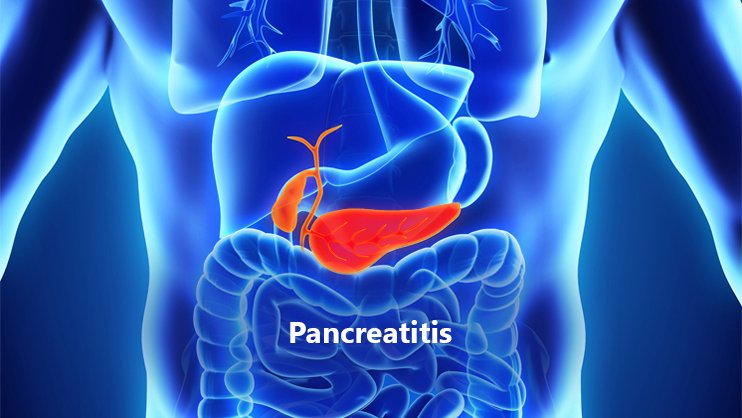Acute Pancreatitis: Warning That Acute Pancreatitis Is Now Manifesting In COVID-19 Patients, A Condition Never Seen In Early Stages Of The Pandemic
Source: Acute Pancreatitis Jun 11, 2020 5 years, 8 months, 2 days, 19 hours, 2 minutes ago
Acute Pancreatitis: A disturbing revelation has been made by a new study conducted by researchers from the University Of Liverpool. The study shows that acute pancreatitis is now materializing in certain COVID-19 patients and also provides a guideline to identifying the condition.

The research findings were published in
Gastroenterology, identifies the signs of COVID-19 related pancreatitis that will enable earlier diagnosis and allow for swifter referral and management.
https://www.gastrojournal.org/article/S0016-5085(20)34741-7/pdf
The spreading global pandemic of severe acute respiratory syndrome coronavirus 2(SARS-CoV2) persists, details of how the disease affects humans is still continuing to emerge.
Typically, acute pancreatitis is a condition where the pancreas becomes inflamed (swollen) over a short period of time. It has been well described that COVID-19 can present with gastrointestinal symptoms. How COVID-19 affected the presentation and progress of acute pancreatitis was unknown.
The well-known Liverpool pancreatic unit, based at the Royal Liverpool University Hospital, is the largest pancreas center in the UK and is specialized in the treatment of patients with pancreas cancer, acute pancreatitis, chronic pancreatitis, pancreatic cystic lesions and complex biliary disease. The unit receives in the region of 2000 referrals a year, of which around 300 are patients with acute pancreatitis.
Ever since the beginning of the pandemic a specific and unusual cluster of symptoms were seen in a small group of patients assessed for acute pancreatitis who had COVID-19.
Most of the COVID-19 patients diagnosed with acute pancreatitis exhibited at least two of the following three features: 1) Abdominal pain consistent with pancreatitis; 2) Serum amylase/lipase greater than 3 times the upper limit of normal and 3) Characteristic findings on cross sectional imaging.
Most of the affected group was young overweight/obese males with the accompanying symptoms that were uncharacteristic of typical acute pancreatitis including inflammation and evidence of high sugar and fat in the blood stream.
Professor of pancreatic surgery, Dr Christopher Halloran said, "Our study highlights for the first-time signs of acute pancreatitis that have not been recognized prior to this pandemic. Knowledge of these signs will alert clinicians to an earlier diagnosis and allow swifter referral and management."
For more about
acute pancreatitis, keep on logging to Thailand Medical News.
